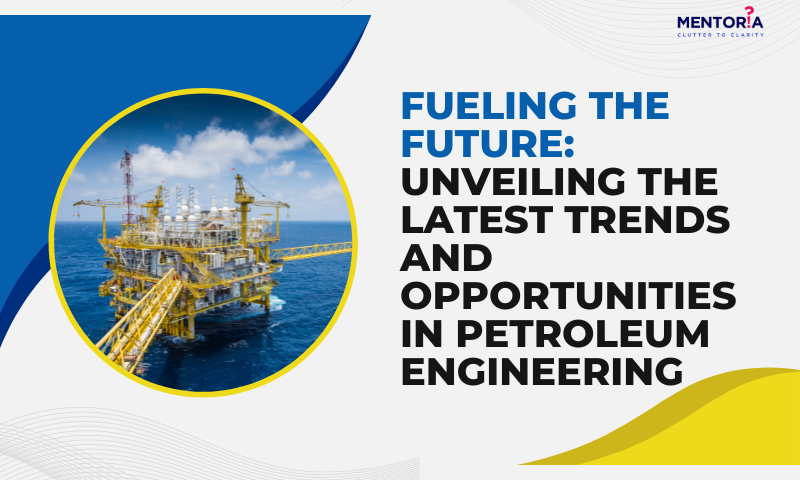Fueling The Future: Unveiling The Latest Trends And Opportunities In Petroleum Engineering

Did you know that every day, the world consumes around 100 million barrels of oil? That’s enough to fill more than 6,000 Olympic-sized swimming pools! From drilling rigs reaching mind-boggling depths to cutting-edge technologies that extract oil from unconventional sources, the field of petroleum engineering is a captivating mix of engineering prowess and environmental consciousness. So grab your hard hat and join us as we embark on a journey to uncover the emerging trends, untapped opportunities, and quirky facts that make this field as captivating as it is essential. Get ready to rock the world of petroleum engineering like a true fossil fuel fanatic!
The Rise Of Sustainable Solutions
In this era of increasing environmental consciousness, sustainability has become a top priority in the field of petroleum engineering. The industry is undergoing a significant transformation, moving away from traditional drilling and extraction methods towards more sustainable practices. Petroleum engineers are leading the charge in developing innovative solutions to reduce the environmental impact of oil and gas operations.
Carbon capture and storage (CCS) is one such revolutionary technique. It involves capturing carbon dioxide emissions from power plants and industrial facilities and storing them underground, preventing them from entering the atmosphere. Petroleum engineers are actively involved in designing and implementing CCS projects, ensuring the safe and efficient storage of carbon dioxide.
Additionally, advancements in fracking technologies are enhancing the industry’s sustainability. Engineers are developing methods to minimise the water and chemical usage in hydraulic fracturing, reducing its environmental footprint. They are also exploring the use of renewable energy sources to power drilling operations, further reducing the industry’s carbon footprint.
Digital Transformation And Automation
The digital revolution is reshaping the landscape of petroleum engineering. Advanced technologies like artificial intelligence (AI), big data analytics, and automation are streamlining processes, improving efficiency, and enhancing safety in the industry.
Data analytics plays a crucial role in decision-making and optimising operations. Petroleum engineers are leveraging sophisticated algorithms to analyse vast amounts of data collected from sensors and drilling equipment. This data-driven approach enables them to make informed decisions, predict reservoir behaviour, and optimise production processes.
Automation is another game-changer in petroleum engineering. AI-powered drilling systems, equipped with sensors and real-time monitoring capabilities, enable engineers to control drilling operations remotely and respond swiftly to any anomalies. This not only increases operational efficiency but also reduces the risk of accidents and human errors.
Virtual simulations are also transforming the way engineers plan and execute drilling projects. Advanced software allows them to create virtual models of reservoirs, simulating drilling scenarios and optimising well designs. This virtual testing minimises costs and improves drilling efficiency, making the entire process safer and more efficient.
Overall, the digital transformation in petroleum engineering is paving the way for increased productivity, safety, and cost-effectiveness, ensuring the industry remains at the forefront of technological innovation.
Unconventional Resources And Exploration
Petroleum engineers are constantly exploring new frontiers and pushing the boundaries of traditional oil and gas extraction. Unconventional resources such as shale gas and oil sands have gained prominence in recent years, presenting exciting opportunities for the industry.
Shale gas extraction involves a technique called hydraulic fracturing or “fracking”. Petroleum engineers employ advanced technologies to create fractures in rock formations deep underground, allowing the extraction of natural gas trapped within the shale. This unconventional method has unlocked vast reserves of natural gas, transforming energy markets around the world.
Oil sands, another unconventional resource, contain a mixture of bitumen, sand, and water. Petroleum engineers have developed specialised techniques to extract bitumen from oil sands and convert it into synthetic crude oil. This process involves methods like steam-assisted gravity drainage (SAGD) and solvent extraction, which require innovative engineering approaches and careful environmental management.
The exploration of unconventional resources requires engineers to adapt and innovate continuously. They are continually improving techniques to maximise resource recovery, minimise environmental impact, and ensure the sustainable development of these resources.
The Human Element: Collaboration And Diversity
Petroleum engineering is not solely about machines and technology; it is about people coming together, collaborating, and embracing diversity to drive progress in the industry.
Collaboration plays a pivotal role in solving complex challenges in petroleum engineering. Multidisciplinary teams comprising geologists, reservoir engineers, drilling experts, and environmental specialists work together to design and execute successful projects. By leveraging their diverse expertise, they can tackle complex problems from various angles, leading to more robust solutions and innovations.
Diversity and inclusivity are also essential in petroleum engineering. Embracing a diverse workforce brings together different perspectives, experiences, and ideas, fostering innovation and creativity. It enables the industry to address complex societal and environmental challenges effectively.
Furthermore, the petroleum engineering community is committed to nurturing the next generation of talent. Collaborative efforts between industry professionals, academic institutions, and research organisations provide platforms for knowledge-sharing, mentorship, and skill development. This fosters a vibrant and inclusive community that encourages continuous learning and professional growth.
Ignite Your Potential With Mentoria
As we wrap up our exhilarating journey through the emerging trends and opportunities in petroleum engineering, it’s clear that this field is far from stagnant. From sustainable practices and digital transformations to unconventional resources and collaborative efforts, the industry continues to evolve and adapt to meet the world’s energy demands. It’s important to remember that success in this field requires continuous learning and growth. That’s where Mentoria comes in. Our expert career counselling services can provide you with the guidance and support you need to excel in the petroleum engineering industry
So, whether you’re an aspiring petroleum engineer or simply fascinated by the wonders of the energy world, remember that the future holds endless possibilities for those who dare to push boundaries and embrace the ever-changing landscape of petroleum engineering. Together, we can fuel a brighter tomorrow!









